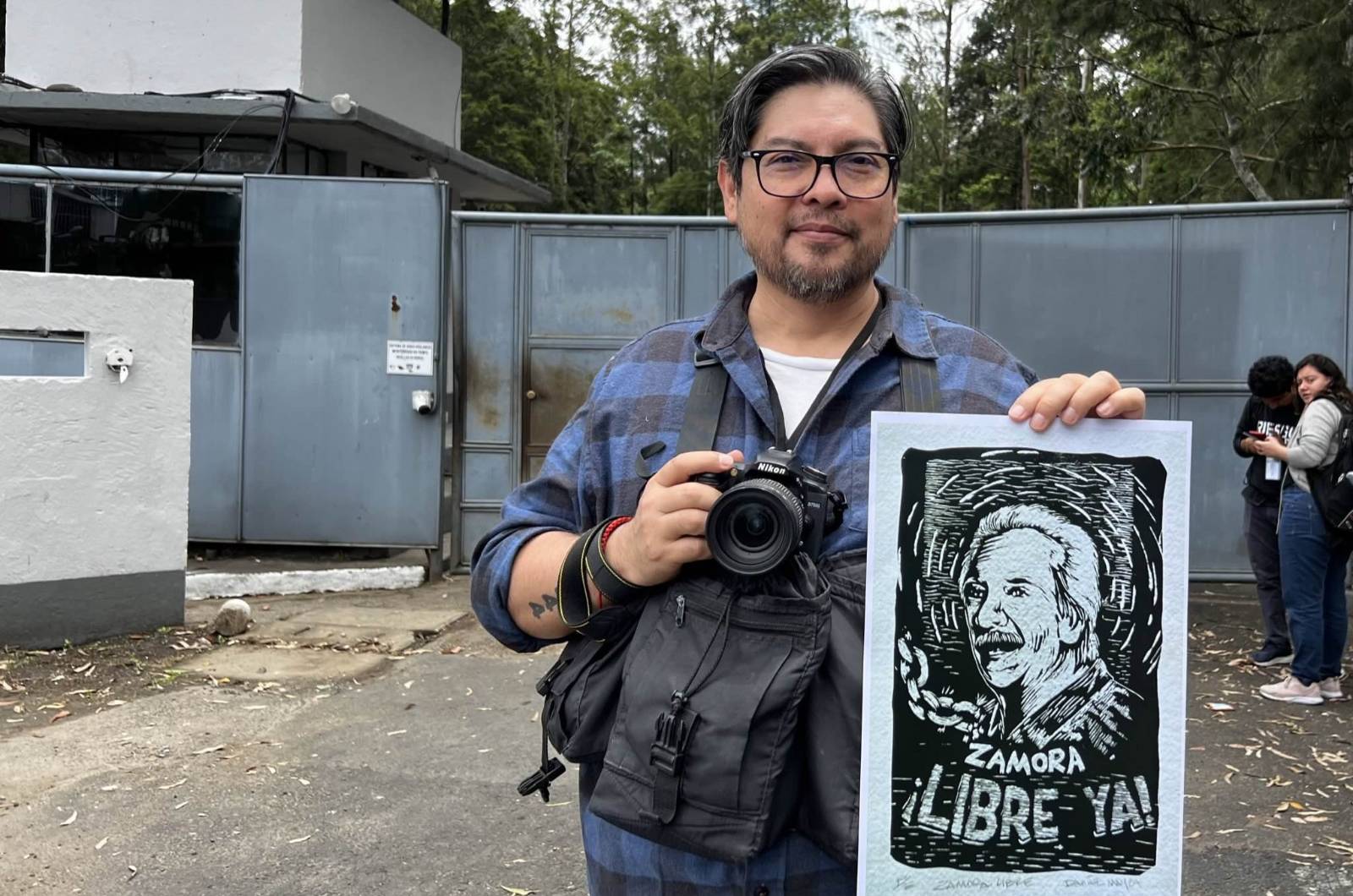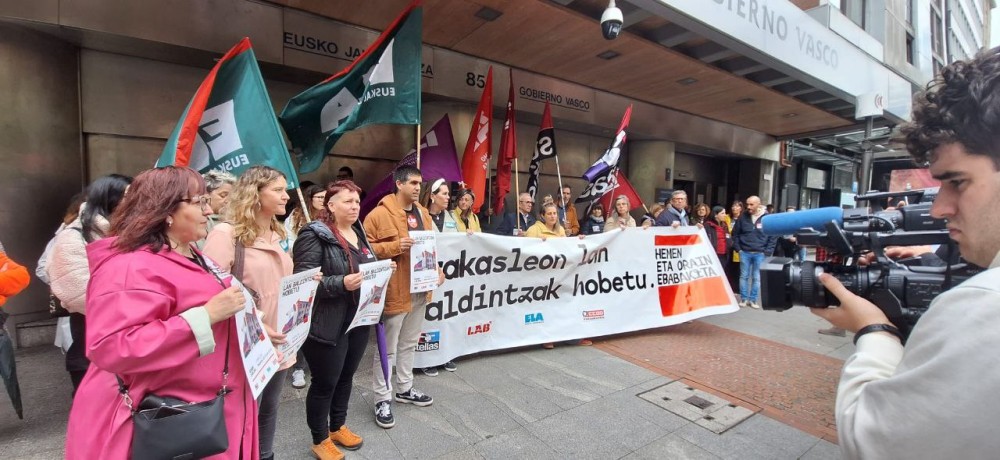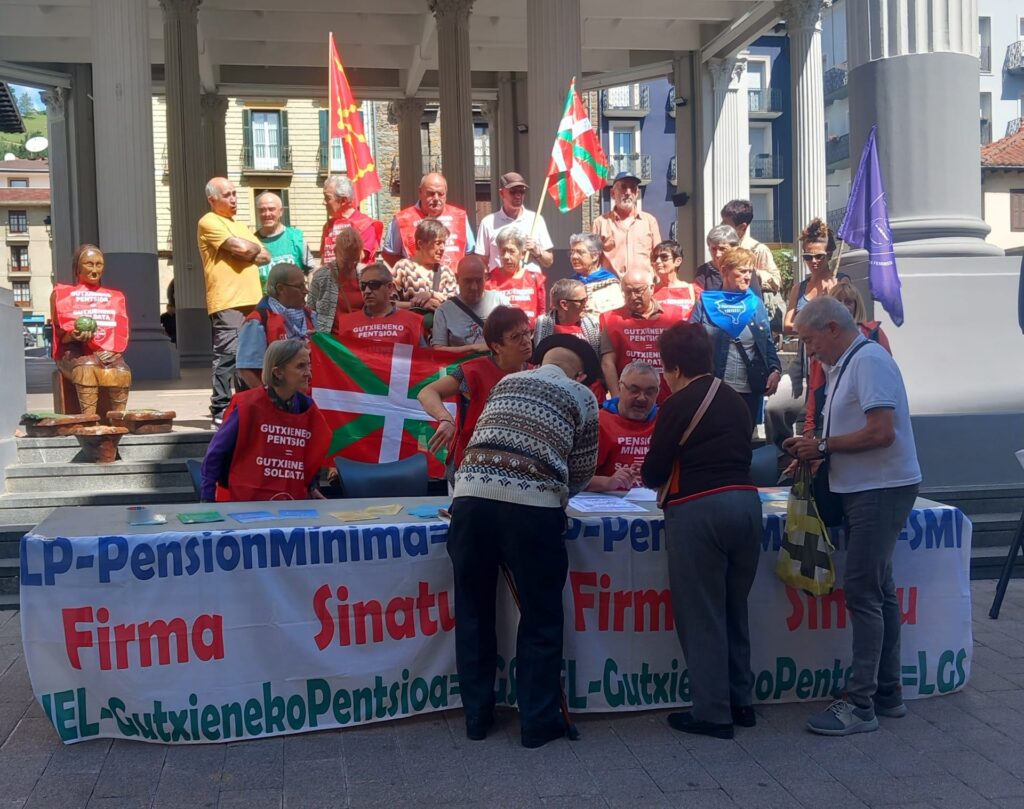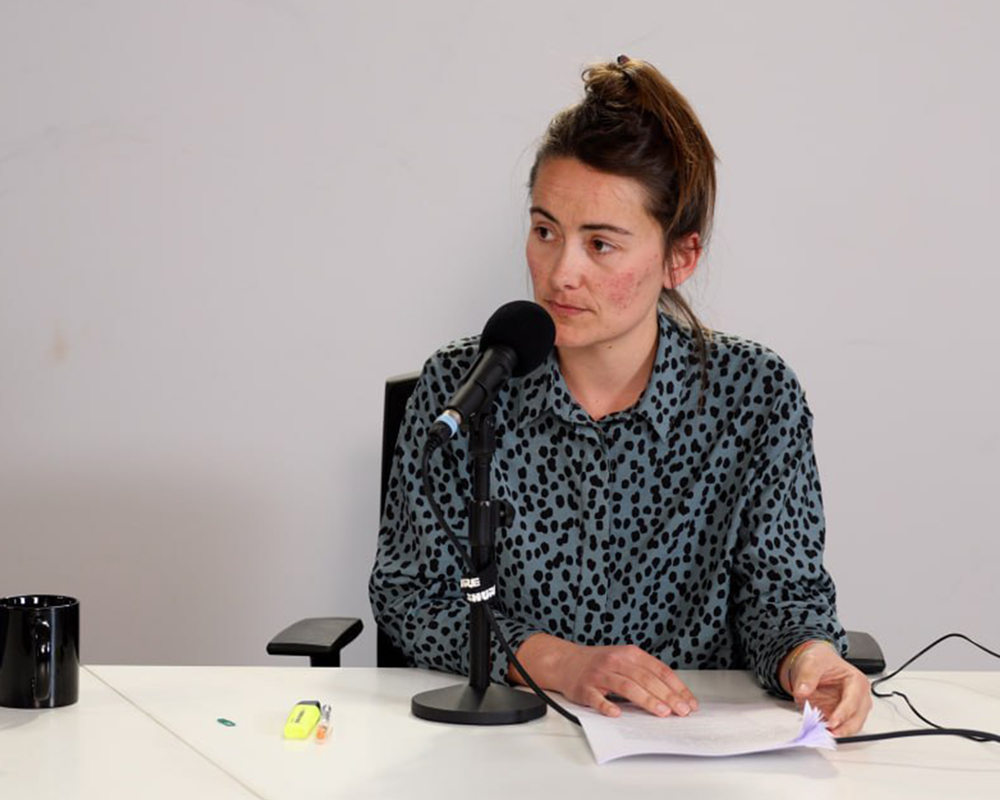Symbolic Recognition of Rights
- At the conference entitled “The Challenges of Minority Languages in the Age of Globalization”, held a week ago in Bilbao, Scotland’s Suzzane Romaine said: “Language loss can be considered an attack on human rights, as people do not voluntarily lose their language. However, there is still much to be done to consider language rights as a human right.”
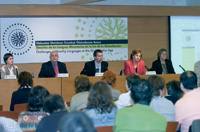
Fernand de Varennes is a Canadian national whose work has focused on human rights, ethnic minorities and conflict resolution. He was aware of the existence of minority language declarations, but did not believe that they were legally valid. “In South Africa, for example, there are eleven official languages, but the government only uses English. When poison was released in northern South Africa due to malaria cases, all information was provided in English. Hey, what happened? That many people in these areas do not know English and will have to suffer the consequences of this poison.” This example, as well as others told in Bilbao, shows that for him it is one thing that is written in the papers and another that happens in reality.
Varennes is pessimistic about the statements: “A number of declarations have been signed in recent years. They're all pretty in the flesh, but they're not binding. They are symbolic and they don’t support us; they don’t really recognize rights.” According to him, it was not until 1993 that we knew that a government cannot prevent the language used by citizens in their private area.
One of the keys for Romain is that language rights are considered by each person as their own right. “We should start any kind of projects to help dying language communities. They are ignored by governments and denied participation in sustainable human development.” From his research, he concludes that if life changes a lot, there are communities that will lose their language. “The point is that we all need to understand that maintaining all languages is important.”
The Scottish linguist finds it difficult to attach such importance to language rights among rights. Because now we live in other values. He argues that the most violent and effective way to violate human rights is through poverty. “Economic development projects do not take into account cultural pain and education does not show a path to multicultural identities.” In some ways, he believes that the way must be found for this, because in the meantime, language rights are repeatedly trampled on by different peoples.
He believes that states only want to talk about socio-economics and not about self-determination. “There is widespread belief that self-determination is the responsibility of indigenous people. But it is not because they are linked to human rights that language rights must also be guaranteed. The fact is that language rights are very important and the right to self-determination will contribute to their development,” adds Romain.
Turning the landscape around is finally in the hands of speakers of minority languages. Varennes has made it clear that when choosing a language, people choose the one that provides opportunities: the one that serves the job, the one that gives it status... “Basques are sure, here, that Basque is the language that offers opportunities?” he asks. No one has been able to answer, but most of the participants in the congress would have had the answer stored somewhere. In fact, knowing only Spanish or French, no one lives badly in the Basque Country.
Great opportunities in new technologies
However, in Wales they have managed to increase the number of speakers among young people. Delyth Prys is a member of the University of Wales and is part of a full programme developed in recent years in Wales. The rise of Welsh has a direct bearing on new technologies. “We’ve worked a lot on the language council, but that was created in 1993. I was already on the way to improving the language. It’s true, however, that the board has helped a lot.” Prys is clear that the pro-Welsh law has not been a vital, but important, condition: “The law gave power to the Welsh language, which is very important.” He believes
that young people are taking a leading role in the world and that this must be maintained. “Making dictionaries before the advent of the Internet was a laborious process and we lost a lot of information along the way. If we had to publish the dictionary and add some notes, we had to wait until the next publication. Notes were lost along the way. There is no such thing now. We can save all the notes at the moment or access or use them in the network.” This is why Prys sees a great opportunity in new technologies.
When they developed a vocabulary to unite Welsh and Irish Gaelic, they organized youth meetings and realized that the initiative was very successful. The work was focused on young people, and today in Wales it is possible to use the vocabulary by segapoto. Thus, without the need to buy large dictionaries, boys and girls can write Welsh anywhere. Prys is convinced that any language has a place on the web and that it must be given its way. He believes that the future of languages is there. At least their experiment went well. Three or four decades ago, on the border between Wales and England, 4% of the population was Welsh and today, the number of speakers reaches up to 10%.
The Basques are also aware of the importance of the network, or at least of the importance of the Basque language being in the network. The fact is that in our country the data on its use are not so good among young people. Luistxo Fernández provided some information about the users of the Basque language on the network. He distinguished two things here: on the one hand, those that enter the web in Basque pages, and on the other hand, those that, although they enter in Basque pages, have the configuration of the browser in Basque. Of those who swim on pages in Basque, only 14% have the complete configuration in Basque. In Fernández’s image, “the language settings of the browser are the main measure of the language available on the Internet. And in our case, if we go to Google, the language of our visit is added to the field of Spanish. Even though the page we entered was written in plain English.” Therefore, it is important to know that the language of the browser is not the same as what you see on the screen, to say the least.
Sustatu.com ran the campaign: The message “You have the browser set up in Spanish” appeared to those who had it, and Fernández says that the configuration in Basque has grown by 32%. It’s not hard to put the configuration in Basque, and Basque has a place in the network. That’s what the Basques give us, no more or less.
“Maite zaitut” herri omenaldia egin diote maiatzaren 3an Pirritx, Porrotx eta Marimotots pailazoei Barakaldon, BEC erakustazokan. Euskal gizarteari egindako ekarpena eskertu nahi izan diote milaka pertsonak Maite Zaitut Kultur Elkarteak antolatutako jaialdian.
Trumpek Gazarako behin baino gehiagotan proposatutako garbiketa etnikoarekin jarraituko du Tel Avivek. Netanyahuk sare sozialetan jakinarazi duenez, Israelek milaka erreserbista deitu ditu Gazaren aurkako setioa gogortzeko eta "erabateko garaipena" lortzeko.
2025ean Guatemalan gutxienez kazetari bat hil dute eta beste bat desagerrarazi. Arriskutsua da kazetaritza lana egitea herrialde horretan, eta hala jaso du Mugarik Gabeko Kazetariak erakundeak ere, maiatzaren 2an argitaratutako 2025eko Prentsa Askatasunaren Munduko Sailkapenean... [+]
Gero eta nabarmenagoa da Espainiako Estatuak ez duela planifikazio demokratikorik energiaren arloan. Duela gutxi jasan dugun itzalaldia adibide garbia da, baina ez da bakarra. Energia berriztagarrien kontrolik gabeko eta lurralde askotan gehiegizko hedapena da beste adibide... [+]
Ez dakit itzalaldiak itsutu gaituen edo itsu gaudelako itzali garen. Edozein kasutan, itzalaldia ez da gaur hasi eta bukatu den gertaera histerikoa –barkatu, historikoa–. Aspaldian hasi zela uste dut eta, zoritxarrez, ez zen San Prudentzio egunean amaitu.
Bridgestone Japoniako pneumatikoen multinazionalak kaleratu nahi dituen langileek elkarretaratzea egin dute astelehen eguerdian Japoniak Madrilen duen enbaxadaren aurrean. Horrez gain, langile batzordeko hainbat kide Yolanda Díaz Espainiako Gobernuko Lan ministroarekin ere... [+]
Nazioarteko ekimenak igandean argitaratutako prentsa ohar batean jakitera eman duenez, Maltako Gobernuak bonbardatutako itsasontzia konpontzeko asmoa erakutsi du. Askatasunaren Ontzidiak eskatu die Maltako agintariei itsasontzia herrialdeko uretan sar dadila. Israelen erasoak... [+]
Nazismoaren biktimak izandako euskal herritarrak oroitzeko Eusko Jaurlaritzak egin duen lehen aitorpen instituzionala da. Hego Euskal Herriko 253 pertsona deportatu zituzten 1940 eta 1945 urteen artean. 113 bertan hil ziren eta beste asko, handik bizirik irten baziren ere... [+]
Maiatzaren 6tik 15era egingo da Pantailak Euskarazek antolatutako aktibazio sozialerako ariketa. Helburua, hamar egunez soilik euskarazko ikus-entzunezkoak kontsumitzea da. Ariketan izena eman daiteke maiatzaren 6ra arte.
Euskal Herriko Pentsiodunen Mugimenduak lau hilabetetako kanpainan lortu du 140.000 herritarren babesa. Herri Ekimen Legegilea maiatzaren 15ean aurkeztuko du Eusko Legebiltzarrean. Pentsio duinak eta gutxieneko soldata besteko pentsioak eskatu ditu mugimenduak.
Bizilagunen obren zarata gogaikarriak esnatu nau gaur ere. Burkoan burua bildu, eta saiatu naiz beste hogei minutuz lo egiten, baina ez zegoen zulagailu hura isilduko zuenik. Jaiki eta apirila hasieran egin nuen eginbeharren taulari begiratu diot; hala zioten errotuladore... [+]
Gutxienez botoen %40 lortuta, George Simion AUR alderdiko buruak bikoiztu egin du bigarren indarraren babes kopurua. Europako Batasuna "diktadura bat" dela aipatu du Simionek behin baino gehiagotan, eta Errumaniak Ukrainari emandako laguntza etetearen alde agertu da... [+]












